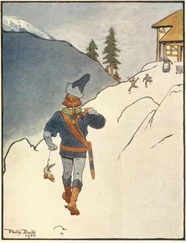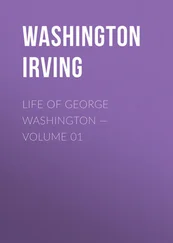Pelham Wodehouse - Not George Washington — an Autobiographical Novel
Здесь есть возможность читать онлайн «Pelham Wodehouse - Not George Washington — an Autobiographical Novel» весь текст электронной книги совершенно бесплатно (целиком полную версию без сокращений). В некоторых случаях можно слушать аудио, скачать через торрент в формате fb2 и присутствует краткое содержание. Жанр: Классическая проза, Юмористическая проза, на английском языке. Описание произведения, (предисловие) а так же отзывы посетителей доступны на портале библиотеки ЛибКат.
- Название:Not George Washington — an Autobiographical Novel
- Автор:
- Жанр:
- Год:неизвестен
- ISBN:нет данных
- Рейтинг книги:4 / 5. Голосов: 1
-
Избранное:Добавить в избранное
- Отзывы:
-
Ваша оценка:
- 80
- 1
- 2
- 3
- 4
- 5
Not George Washington — an Autobiographical Novel: краткое содержание, описание и аннотация
Предлагаем к чтению аннотацию, описание, краткое содержание или предисловие (зависит от того, что написал сам автор книги «Not George Washington — an Autobiographical Novel»). Если вы не нашли необходимую информацию о книге — напишите в комментариях, мы постараемся отыскать её.
Not George Washington — an Autobiographical Novel — читать онлайн бесплатно полную книгу (весь текст) целиком
Ниже представлен текст книги, разбитый по страницам. Система сохранения места последней прочитанной страницы, позволяет с удобством читать онлайн бесплатно книгу «Not George Washington — an Autobiographical Novel», без необходимости каждый раз заново искать на чём Вы остановились. Поставьте закладку, и сможете в любой момент перейти на страницу, на которой закончили чтение.
Интервал:
Закладка:
The clocks struck three as the Reverend paid the cab.
"Hullo!" said he. "Why, there's a light in Cloyster's sitting-room. He can't have gone to bed yet. His late hours save us a great deal of trouble." And he went up the two or three steps which led to the front door.
A glance at Tom Blake showed me that the barge-driver was alarmed. He looked solemn and did not speak. I felt funny, too. Like when I first handed round the collection-plate in our parish church. Sort of empty feeling.
But the Reverend was all there, spry and business-like.
He leaned over the area railing and gave three short, sharp taps on the ground floor window with his walking-stick.
Behind the lighted blind appeared the shadow of a man's figure.
"It's he!" "It's him!" came respectively and simultaneously from the Reverend and myself.
After a bit of waiting the latch clicked and the door opened. The door was opened by Mr. Cloyster himself. He was in evening dress and hysterics. I thought I had heard a rummy sound from the other side of the door. Couldn't account for it at the time. Must have been him laughing.
At the sight of us he tried to pull himself together. He half succeeded after a bit, and asked us to come in.
To say his room was plainly furnished doesn't express it. The apartment was like a prison cell. I've never been in gaol, of course. But I read "Convict 99" when it ran in a serial. The fire was out, the chairs were hard, and the whole thing was uncomfortable. Never struck such a shoddy place in my natural, ever since I called on a man I know slightly who was in "The Hand of Blood" travelling company No. 3 B.
"Delighted to see you, I'm sure," said Mr. Cloyster. "In fact, I was just going to sit down and write to you."
"Really," said the Reverend. "Well, we've come of our own accord, and we've come to talk business." Then turning to Blake and me he added, "May I state our case?"
"Most certainly, sir," I answered. And Blake gave a nod.
"Briefly, then," said the Reverend, "our mission is this: that we three want our contracts revised."
"What contracts?" said Mr. Cloyster.
"Our contracts connected with your manuscripts."
"Since when have the several matters of business which I arranged privately with each of you become public?"
"Tonight. It was quite unavoidable. We met by chance. We are not to blame. Tom Blake was——"
"Yes, he looks as if he had been."
"Our amended offer is half profits."
"More coin," murmured Blake huskily. "Wot 'o!"
"I regret that you've had your journey for nothing."
"You refuse?"
"Absolutely."
"My dear Cloyster, I had expected you to take this attitude; but surely it's childish of you. You are bound to accede. Why not do so at once?"
"Bound to accede? I don't follow you."
"Yes, bound. The present system which you are working is one you cannot afford to destroy. That is clear, because, had it not been so, you would never have initiated it. I do not know for what reason you were forced to employ this system, but I do know that powerful circumstances must have compelled you to do so. You are entirely in our hands."
"I said just now I was delighted to see you, and that I had intended to ask you to come to me. One by one, of course; for I had no idea that the promise of secrecy which you gave me had been broken."
The Reverend shrugged his shoulders.
"Do you know why I wanted to see you?"
"No."
"To tell you that I had decided to abandon my system. To notify you that you would, in future, receive no more of my work."
There was a dead silence.
"I think I'll go home to bed," said the Reverend.
Blake and myself followed him out.
Mr. Cloyster thanked us all warmly for the excellent way in which we had helped him. He said that he was now engaged to be married, and had to save every penny. "Otherwise, I should have tried to meet you in this affair of the half-profits." He added that we had omitted to congratulate him on his engagement.
His words came faintly to our ears as we tramped down Walpole Street; nor did we, as far as I can remember, give back any direct reply.
Tell you what it was just like. Reminded me of it even at the time: that picture of Napoleon coming back from Moscow. The Reverend was Napoleon, and we were the generals; and if there were three humpier men walking the streets of London at that moment I should have liked to have seen them.
CHAPTER 19
IN THE SOUP (Sidney Price's narrative continued)
They give you a small bonus at the "Moon" if you get through a quarter without being late, which just shows the sort of scale on which the "Moon" does things. Cookson, down at the Oxford Street Emporium, gets fined regular when he's late. Shilling the first hour and twopence every five minutes after. I've known gentlemen in banks, railway companies, dry goods, and woollen offices, the Indian trade, jute, tea—every manner of shop—but they all say the same thing, "We are ruled by fear." It's fear that drags them out of bed in the morning; it's fear that makes them bolt, or even miss, their sausages; it's fear that makes them run to catch their train. But the "Moon's" method is of a different standard. The "Moon" does not intimidate; no, it entwines itself round, it insinuates itself into, the hearts of its employees. It suggests, in fact, that we should not be late by offering us this small bonus. No insurance office and, up to the time of writing, no other assurance office has been able to boast as much. The same cause is at the bottom of the "Moon's" high reputation, both inside and outside. It does things in a big way. It's spacious.
The "Moon's" timing system is great, too. Great in its simplicity. The regulation says you've got to be in the office by ten o'clock. Suppose you arrive with ten minutes to spare. You go into the outer office (there's only one entrance—the big one in Threadneedle Street) and find on the right-hand side of the circular counter a ledger. The ledger is open: there is blotting-paper and a quill pen beside it. Everyone's name is written in alphabetical order on the one side of the ledger and on the other side there is a blank page ruled down the middle with a red line. Having made your appearance at ten to ten, you put your initials in a line with your name on the page opposite and to the left of the division. If, on the other hand, you've missed your train, and don't turn up till ten minutes past ten, you've got to initial your name on the other side of the red line. In the space on the right of the line, a thick black dash has been drawn by Leach, the cashier. He does this on the last stroke of ten. It makes the page look neat, he says. Which is quite right and proper. I see his point of view entirely. The ledger must look decent in an office like the "Moon." Tommy Milner agrees with me. He says that not only does it look better, but it prevents unfortunate mistakes on the part of those who come in late. They might forget and initial the wrong side.
After ten the book goes into Mr. Leach's private partition, and you've got to go in there to sign.
It was there when I came into the office on the morning after we'd been to talk business with Mr. Cloyster. It had been there about an hour and a half.
"Lost your bonus, Price, my boy," said genial Mr. Leach. And the General Manager, Mr. Fennell, who had stepped out of his own room close by, heard him say it.
"I do not imagine that Mr. Price is greatly perturbed on that account. He will, no doubt, shortly be forsaking us for literature. What Commerce loses, Art gains," said the G.M.
He may have meant to be funny, or he may not. Some of those standing near took him one way, others the other. Some gravely bowed their heads, others burst into guffaws. The G.M. often puzzled his staff in that way. All were anxious to do the right thing by him, but he made it so difficult to tell what the right thing was.
Читать дальшеИнтервал:
Закладка:
Похожие книги на «Not George Washington — an Autobiographical Novel»
Представляем Вашему вниманию похожие книги на «Not George Washington — an Autobiographical Novel» списком для выбора. Мы отобрали схожую по названию и смыслу литературу в надежде предоставить читателям больше вариантов отыскать новые, интересные, ещё непрочитанные произведения.
Обсуждение, отзывы о книге «Not George Washington — an Autobiographical Novel» и просто собственные мнения читателей. Оставьте ваши комментарии, напишите, что Вы думаете о произведении, его смысле или главных героях. Укажите что конкретно понравилось, а что нет, и почему Вы так считаете.



